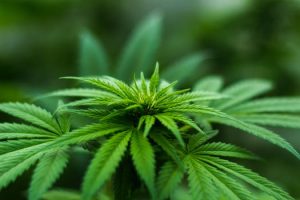Cannabis is either loved or hated by many people we know today. Some see it as a drug that only criminals should be dealing with, while others encourage everyone they know to try it for the medical benefits it provide. As of this year, more states are legalizing weed to help medical distributors treat their patients with issues ranging from headache, chronic muscle aches, high stress levels, and even various types of cancer. It may come as a surprise but it’s been recently found that opioid addiction can be treated by medical cannabis as well. If you believe that cannabis-assisted detox for opioid use disorder is wrong because it’s injecting more drugs into your system, then think again.

Medically assisted treatment
Medical cannabis has proven us all wrong as it’s assisting patients with dropping their heavy reliance on intense drugs like opioids. What’s great about medical cannabis is that it doesn’t cause a harsh dependency in a person when it’s used responsibly. It also isn’t causing overdose cases in people — unlike opioids, which takes the lives of about 175 people each day in the United States. While using medical cannabis, a person can expect to have fewer side effects than most prescribed medications from the doctor. As a result, medical cannabis has been linked recently with a large reduction in opioid overdose rates but still will be highly controversial in states where it still isn’t legal. Out of all of the states, only Pennsylvania and New Jersey are the new territories this year to approve medical cannabis as a viable method to treat chronic pain or opioid addiction.
This majority disdain for medical cannabis is nothing new, since the general public has associated addiction recovery with abstaining from of all euphoric substances overall. In addition to the ingrained sobriety from drugs rule, another reason that many states don’t approve any type of medical cannabis is because there’s not enough solid research done yet about its benefits. Most governments may hear about word of mouth of its miracle effects on the street, but even the most positive reviews won’t overturn little scientific evidence to back them up. Depending on the results of research performed by several universities throughout states like Pennsylvania, medical cannabis may not be available permanently is at risk for tests showing poor results.
On the other hand, some liberal policy makers like Jessica Gelay from New Mexico is strongly encouraging it’s approval from her firsthand experience. She recently touted its ability to minimize risks by saying, “Medical cannabis can not only help people get rest [when they’re in withdrawal]…it can also help reduce nausea, get an appetite, reduce anxiety and cravings…it helps people reduce the craving voice”. However, as convincing as the portrayal may sound, there’s too little scientific backup for medically assisted treatment c enters to always include cannabis.
Medical Cannabis For Opioid Addiction
Opioids can be a sticky drug to tackle if someone develops a severe addiction to them. Opioids work in a person’s brain by attaching to their opioid receptors and altering the way they can respond to both pain and pleasure. When opioids enter a person’s body, they will experience a quick rush of pleasure in the first few minutes along with temporary euphoria and calmness. Yet, after this high is over feelings of depression, panic attacks of anxiety, severe muscle aches, intense nausea, and overall discomfort can last for hours to days. Instead of using another medication that could provide a longer list of side effects to deal with, medical cannabis allows a person with a substance abuse disorder to plug out, decrease their levels of pain, lower their inflammation, and assist their mental health overall. While it isn’t a sole cure for drug addiction, it’s more of a tool for harm reduction to decline a patient’s opioid abuse.
At the same time, not everyone should jump to using medical cannabis if they are suffering from opioid addiction. The FDA hasn’t yet found if someone who is of old age or are already weakened by an illness can safely use the drug for their addiction treatment. Scientists are also still unclear about the effects using medical cannabis will have if a person is pregnant. If you happen to live in a state that allows medical dispensaries for medical cannabis, you will have to show proof of recommendation by your doctor since an official prescription isn’t possible yet. Just like any other medication, taking the drug will require showing evidence of your symptoms so you can safely use it for your treatment. One size won’t fit everyone’s mold of addiction in this case as marijuana is still highly unregulated.

Moving Forward
No one wants to wake up feeling terrible from withdrawal effects or suffer from a possible overdose from their opioid addiction. Medical cannabis can serve as a highly beneficial tool for rehab treatment for its ability to calm down acute pain, silence the “voice” of cravings in a person’s head, and provide an overall peace of mind. If you happen to be going through an opioid addiction or know someone who is, don’t hesitate to bring up medical cannabis to relieve their pain. While the drug shouldn’t be used as a crutch, if they can consult a detox specialist and gain recommendation for it their chances of successfully staying sober of opioids can dramatically increase. If you can attest that medical cannabis is beneficial for a patient but personally don’t agree with the method, please don’t keep the information to yourself either. What may have worked for you to decrease your levels of pain or anxiety or what you believe to work better won’t necessarily proud the same success for the next person. Let’s let everyone make decisions for their health themselves even if we don’t agree where it stems from.

